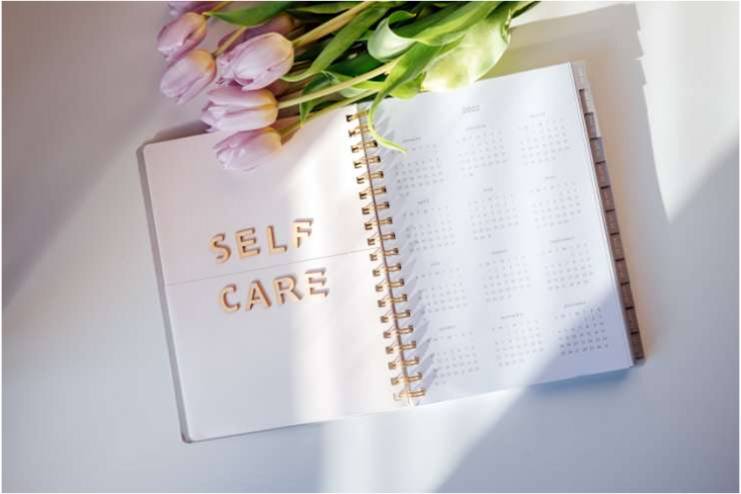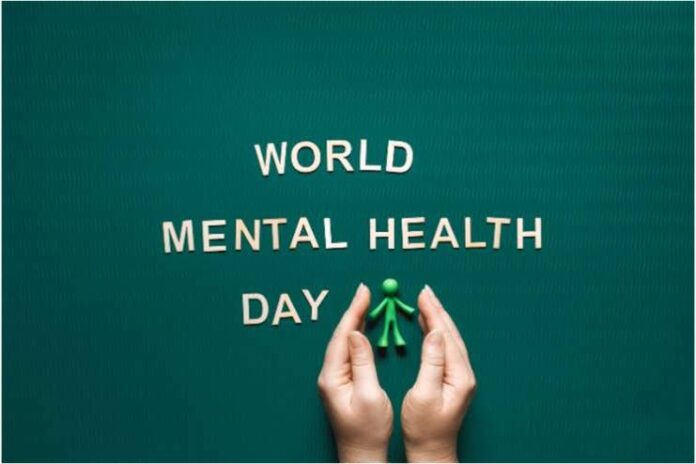Affiliate Disclaimer
Some links in this article are affiliate links. We may earn a small commission if you make a purchase through these links, at no extra cost to you. We only recommend products we find useful to our readersEvery year on October 10th, we observe World Mental Health Day to promote mental health and raise awareness of mental health issues. World Mental Health Day, founded by the World Federation for Mental Health in 1992, aims to organize actions in support of mental health and increase global awareness of mental health issues.
The Day allows everyone involved in mental health to discuss their work and identify what more needs to be done to ensure everyone worldwide has access to mental health care. Its importance stems from the expanding understanding that, despite frequently being disregarded or misinterpreted, mental health is just as important as physical health.
Each year, a theme is selected to highlight significant concerns such as suicide prevention and mental health in the workplace. This year, the World Mental Health Day campaign will focus on “Mental Health at Work” and direct its efforts to support better mental health in the workplace.

The Importance of Mental Health Awareness

Raising public awareness about mental health issues is essential to ending the stigma associated with mental illness and promoting an emotionally healthy society. People of all backgrounds are experiencing an increase in mental health problems on a global scale.
According to the World Health Organization (WHO), in 2019, 1 in 8 individuals, or 970 million people worldwide, had mental illness, with anxiety and depressive disorders being the most prevalent. Due in large part to the COVID-19 epidemic, the number of individuals who are suffering from anxiety and depression increased dramatically in 2020.
Depression affects about 280 million people worldwide, an estimated 3.8% of the population, including at least 5.7% of individuals over 60 years and 5% of adults (4% of males and 6% of women). Women are 50% more likely than men to experience depression. Globally, over 10% of women who are pregnant or recently gave birth experience depression.
An estimated 700,000 people lose their lives to suicide every year, the fourth most common cause of mortality for people aged 15 to 29.
Increasing awareness can help save lives by promoting early intervention and lowering the associated stigma. It can also help advocate for improved mental health services, laws, and social support and eventually create a more compassionate and inclusive world.
Practical Self-Care Tips for Mental Health Improvement

Self-care is making time for activities that improve physical and mental well-being and quality of life. This year’s theme, “Mental Health at Work,” emphasizes the importance of caring for your mental health in the workplace. Here are some practical tips to help you incorporate self-care into your daily routine and support your mental well-being.
- Get Regular Physical Exercise: Daily exercise is a highly effective way to improve your mental well-being. Endorphins, known as “feel-good” hormones, can be released even from basic exercises like brisk walking. Spending hours at the gym is unnecessary, and simple actions like using the stairs instead of the elevator or taking a ten-minute lunchtime stroll can make a big difference in your mood.
- Prioritize a Balanced Diet and Hydration: What we eat and how hydrated we are greatly influence our energy and mental clarity. Maintaining proper hydration and eating a well-balanced diet of whole foods, fruits, and vegetables will improve your mood and concentration. Watch how much caffeine or alcohol you consume because too much of either might make you anxious and impair your judgment.
- Establish a Healthy Sleep Routine: A healthy sleep pattern is essential for mental well-being. Maintaining a regular sleep schedule makes it easier for your body to adjust its internal clock and leaves you feeling rejuvenated. Reducing the amount of blue light that comes from devices at night can improve the quality of your sleep. To wind down and prepare your mind for a restful sleep, consider establishing a relaxing evening ritual that includes light stretching, reading a book, or having a warm bath.
- Practice Mindful Relaxation and Gratitude: Incorporating mindfulness into your daily activities can help you feel more at ease and in control, especially with this year’s theme, “Mental Health at Work,” highlighting the need for mental wellness on the job. To reduce stress, try progressive muscle relaxation, deep breathing exercises, or meditation. Make time for hobbies like painting or gardening that bring you joy. A daily gratitude practice, focusing on the positives in your life, can shift your perspective and improve your mental well-being, both at work and in your personal life.
Resources for Mental Health Support

Correct mental health support can change one’s life and provide a safety net when things get tough. It is a carefully selected list of helpful resources, community support choices, and helplines to offer support and encouragement.
The 988 Lifeline: Contact for free, round-the-clock hotline for private assistance and any crisis intervention.
Crisis Text Line: Anyone experiencing mental distress can text a qualified crisis counselor to get help. The line is available 24/7.
Mental Health America: This group offers extensive resources, such as local support directories and screening tools. Visit Mental Health America to learn more.
National Alliance on Mental Illness, or NAMI: provides a hotline, support groups, and educational materials.
Local Community Centers: Several towns provide workshops and support groups. For resources specific to your location, consult your health department or local classifieds.
These resources are invaluable in promoting mental health and giving you the assistance you require. Never be afraid to get in touch!
The Role of Technology in Mental Health
The field of mental health treatment has seen a radical transformation because of technology, which has increased accessibility to help. Digital platforms have made it possible for people to communicate with mental health specialists from the comfort of their homes, removing geographical and stigmatizing boundaries.
Mental health help is always just a click away, thanks to teletherapy apps like BetterHelp (BetterHelp)and Talkspace (Talkspace). These apps offer a secure environment for users to interact with therapists via chat, video, or voice.
One of the main advantages is the greater accessibility for people who might otherwise be reluctant to ask for assistance, particularly in distant places. Additionally, because digital solutions promote anonymity, people can investigate their mental health issues without worrying about being judged.
On the other hand, relying too much on technology can cause problems like a loss of human connection because virtual interactions have a different depth than in-person ones. Additionally, individuals looking for trustworthy resources may need help due to data privacy concerns and the caliber of information provided online.
Ultimately, technology in mental health care is a double-edged sword that, although providing incredible advances, must be carefully navigated to optimize its advantages and minimize its risks.
Conclusion
The path to better mental health is complex, combining self-care techniques, awareness, and thoughtful technology use. People can develop resilience and emotional stability by putting mental health first through consistent exercise, a decent diet, restful sleep, and mindful relaxation.
Furthermore, introducing digital solutions provides never-before-seen access to information and assistance, but looking for potential hazards is essential. A more hopeful future where everyone can flourish and get treatment without fear is possible if we cultivate an atmosphere of transparency and understanding around mental health.
References
- https://www.who.int/campaigns/world-mental-health-day
- https://wmhdofficial.com
- https://www.un.org/en/healthy-workforce/world-mental-health-day
- https://www.mentalhealth.org.uk/our-work/public-engagement/world-mental-health-day
- https://publichealth.jhu.edu/2024/simple-actions-you-can-take-on-world-mental-health-day-2024
- https://www.mentalhealthfirstaid.org/worldmentalhealthday
- https://www.who.int/news-room/fact-sheets/detail/mental-disorders
- https://www.who.int/news-room/fact-sheets/detail/depression
- https://www.nimh.nih.gov/health/topics/caring-for-your-mental-health
- https://www.mentalhealthfirstaid.org/2022/03/how-and-why-to-practice-self-care
- https://www.nhs.uk/mental-health/self-help/guides-tools-and-activities/five-steps-to-mental-wellbeing
- https://www.mind.org.uk/information-support/types-of-mental-health-problems/mental-health-problems-introduction/self-care
- https://www.verywellmind.com/self-care-strategies-overall-stress-reduction-3144729
- https://mhanational.org/taking-good-care-yourself
- https://www.lifespan.org/lifespan-living/importance-mental-health-awareness-month
- https://www.cdc.gov/mentalhealth/learn/index.htm
- https://www.snhu.edu/about-us/newsroom/health/why-is-mental-health-awareness-important
- https://988lifeline.org
- https://www.nami.org
- https://www.crisistextline.org
- https://www.mhanational.org
- https://www.nimh.nih.gov/health/topics/technology-and-the-future-of-mental-health-treatment
- https://www.nuffieldbioethics.org/assets/pdfs/The-role-of-technology-in-mental-healthcare.pdf
- https://www.ncbi.nlm.nih.gov/pmc/articles/PMC9362215
- https://www.news-medical.net/health/What-are-the-Applications-of-Technology-Based-Mental-Health-Interventions.aspx
In this Article




















